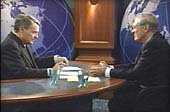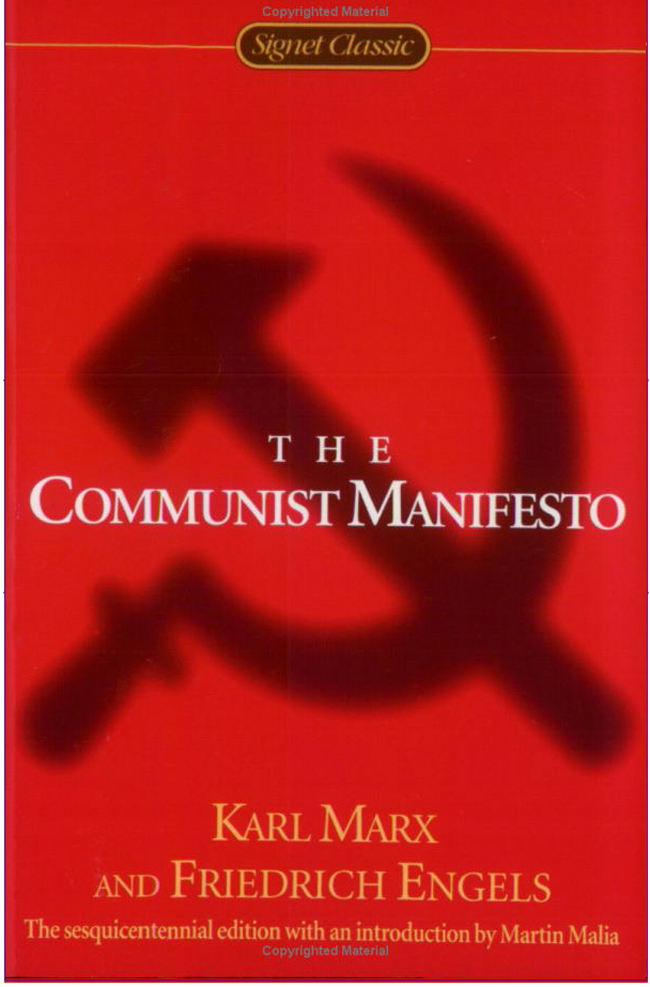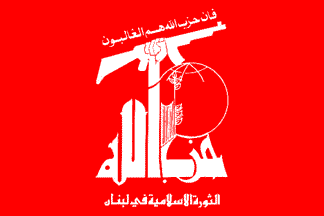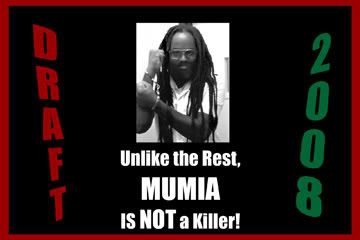PBS Media Flaks Hide Uncle Sam's Persian Bloodlust

Those who tuned into the PBS NewsHour last evening were made to withstand an insufferable interview conducted by Margaret Warner with the Secretary General of NATO, Jaap de Hoop Scheffer. Surprisingly, following their meeting earlier in the day, statements to the media given by both George Bush and Scheffer named Darfur as the only topic the two men discussed.
Rather than doing the job of a serious journalist and skeptically asking about other issues Scheffer and Bush may have spoken about, Warner took the press release as the point of departure and naively accepted at face value that Darfur really was the sole reason behind their meeting.
Of course, Uncle Sam does play a major role in Darfur. We know from high-ranking Sudanese officials like Major General Yahia Hussein Babiker that the CIA has achieved "complete normalization" with the very same Sudanese intelligence agents who have pillaged Darfur and collaborated with al-Qaeda. A major story broken by Ken Silverstein in the LA Times on 29 April 2005 quotes Sudan's Intelligence Chief, Major General Salah Abdallah Gosh as saying, "We have a strong partnership with the CIA. The information we have provided has been very useful to the United States."
The piece goes on to describe Gosh's sordid past.
We learn two important lessons from Sam's involvement in the Darfur crisis. First, Uncle Sam never acts with a humanitarian intent. Its aim – the overall aim of global capital – is always to enrich itself off others' resources.
Secondly, we learn the importance of looking past rhetoric to examine how Uncle Sam uses the crises in Darfur as a smokescreen to divert attention from sensitive diplomacy.
Keeping these two lessons in mind, we now return to Margaret Warner's interview of Jaap de Hoop Scheffer.
Considering that Warner traveled to Occupied Palestine and Apartheid Israel during the recent Palestinian elections, one may have expected her to ask Scheffer about the implications of what the BBC calls the "increasingly close relationship between Nato and Israel," especially amidst the Zionist state's merciless siege - a form of collective punishment - of Palestine.
But she did not.
Considering the assassination of Slobodan Milosevic held in custody by the West during his collapsing show-trial, one may have expected her to inquire not only about NATO's role in the death of Serbia's former President. Additionally, one would assume she would ask about their responsibility for the economic, social, and cultural collapse hastened by its brutal attack on the Balkans.
But she did not.
And, considering that Uncle Sam has clearly made their campaign to massacre Persians its highest priority, only a journalists truly divorced from the real world could ignore the recent report in the Sunday Times that detailed NATO's interest in joining Sam's campaign to kill Iranians.
Yet that's precisely what Warner did. One recalls during that trip to India that the corporate media, again acting as stenographers for Uncle Sam, regurgitated the patently absurd assertion that Sam gave away nuclear weapons to India for mangos. Warner and the corporate media ignored the elephant in the living room with Scheffer - Uncle Sam's lust for war with Iran - just as they ignored it when Bush went to India.
Then, as now, the corporate media refused to ask about Iran in a diplomatic context even as Uncle Sam's enforcers and technicians – people like Mafia Don Rumsfeld and Sambo Rice – ramp up their rhetoric.
Apart from the blustery rhetoric and unlike its Iraq strategy of conducting diplomacy with overt threats and public intimidation, Uncle Sam has opted for a quieter, subterranean propaganda campaign against Iran to avoid alienating potential allies. The reason is simple: stoking the anger and rage of the world population would bury the already floundering campaign.
This week, Iran announced its intent to accelerate uranium enrichment at the same time as Russia and China challenged Uncle Sam and its European vassals on their warmongering, stonewalling their efforts to bring Iran's legal nuclear power program before the UN Security Council.
Also standing in solidarity with the Iranian people, Comrade Hugo broke down Uncle Sam's propaganda war against Iran:
If this campaign fails, Uncle Sam will have to rely on the well documented, well planned sneak attack against Iran by Apartheid Israel. The sneak attack, which Uncle Sam will blame on those who don't acquiesce to its campaign against Iran, will force every country into a "with us or with the 'terrorists" choice between Iran and Apartheid Israel.
Rather than doing the job of a serious journalist and skeptically asking about other issues Scheffer and Bush may have spoken about, Warner took the press release as the point of departure and naively accepted at face value that Darfur really was the sole reason behind their meeting.
Of course, Uncle Sam does play a major role in Darfur. We know from high-ranking Sudanese officials like Major General Yahia Hussein Babiker that the CIA has achieved "complete normalization" with the very same Sudanese intelligence agents who have pillaged Darfur and collaborated with al-Qaeda. A major story broken by Ken Silverstein in the LA Times on 29 April 2005 quotes Sudan's Intelligence Chief, Major General Salah Abdallah Gosh as saying, "We have a strong partnership with the CIA. The information we have provided has been very useful to the United States."
The piece goes on to describe Gosh's sordid past.
Members of Congress accused him and other senior Sudanese officials of directing military attacks against civilians in Darfur. During the 1990s, the Mukhabarat assigned Gosh to be its Al Qaeda minder. In that role he had regular contacts with Bin Laden, a former Mukhabarat official confirmed.In a report a few days later, UPI confirmed this. "The Sudanese intelligence chief, Maj. Gen. Salah Abdallah Gosh, has been accused by members of Congress of directing military attacks against civilians in Darfur. He also had regular contacts with Osama bin Laden during the 1990s."
Today, Gosh is keeping in contact with the office of CIA Director Porter J. Goss and senior agency officials.
We learn two important lessons from Sam's involvement in the Darfur crisis. First, Uncle Sam never acts with a humanitarian intent. Its aim – the overall aim of global capital – is always to enrich itself off others' resources.
Secondly, we learn the importance of looking past rhetoric to examine how Uncle Sam uses the crises in Darfur as a smokescreen to divert attention from sensitive diplomacy.
Keeping these two lessons in mind, we now return to Margaret Warner's interview of Jaap de Hoop Scheffer.
Considering that Warner traveled to Occupied Palestine and Apartheid Israel during the recent Palestinian elections, one may have expected her to ask Scheffer about the implications of what the BBC calls the "increasingly close relationship between Nato and Israel," especially amidst the Zionist state's merciless siege - a form of collective punishment - of Palestine.
But she did not.
Considering the assassination of Slobodan Milosevic held in custody by the West during his collapsing show-trial, one may have expected her to inquire not only about NATO's role in the death of Serbia's former President. Additionally, one would assume she would ask about their responsibility for the economic, social, and cultural collapse hastened by its brutal attack on the Balkans.
But she did not.
And, considering that Uncle Sam has clearly made their campaign to massacre Persians its highest priority, only a journalists truly divorced from the real world could ignore the recent report in the Sunday Times that detailed NATO's interest in joining Sam's campaign to kill Iranians.
Yet that's precisely what Warner did. One recalls during that trip to India that the corporate media, again acting as stenographers for Uncle Sam, regurgitated the patently absurd assertion that Sam gave away nuclear weapons to India for mangos. Warner and the corporate media ignored the elephant in the living room with Scheffer - Uncle Sam's lust for war with Iran - just as they ignored it when Bush went to India.
Then, as now, the corporate media refused to ask about Iran in a diplomatic context even as Uncle Sam's enforcers and technicians – people like Mafia Don Rumsfeld and Sambo Rice – ramp up their rhetoric.
Apart from the blustery rhetoric and unlike its Iraq strategy of conducting diplomacy with overt threats and public intimidation, Uncle Sam has opted for a quieter, subterranean propaganda campaign against Iran to avoid alienating potential allies. The reason is simple: stoking the anger and rage of the world population would bury the already floundering campaign.
This week, Iran announced its intent to accelerate uranium enrichment at the same time as Russia and China challenged Uncle Sam and its European vassals on their warmongering, stonewalling their efforts to bring Iran's legal nuclear power program before the UN Security Council.
Also standing in solidarity with the Iranian people, Comrade Hugo broke down Uncle Sam's propaganda war against Iran:
You know that one of the most serious problems the world has today is the energy problem, so much so that the North American empire has invaded Iraq just to look for oil and now threatens Iran because of oil… I'm completely sure that it's absolutely false that the Iranian government is developing an atomic bomb. It's the United States that has the atomic bombs.The corporate media and Democrat party's acquiescence to the current administrations failing effort to rally the world to the cause of killing Persians underscores the importance of the Sam's pressing need to save the Greenback by maintaining their control the world's supply of oil.
If this campaign fails, Uncle Sam will have to rely on the well documented, well planned sneak attack against Iran by Apartheid Israel. The sneak attack, which Uncle Sam will blame on those who don't acquiesce to its campaign against Iran, will force every country into a "with us or with the 'terrorists" choice between Iran and Apartheid Israel.







<< Home